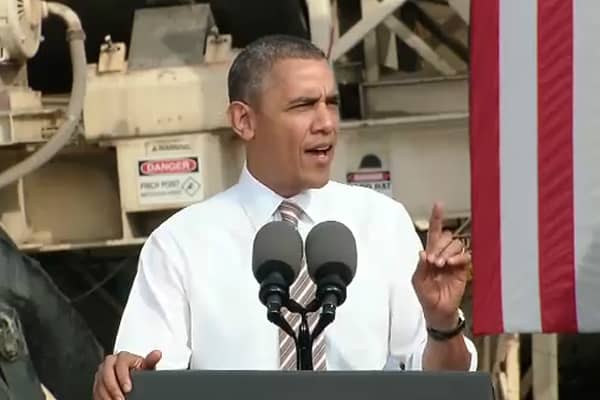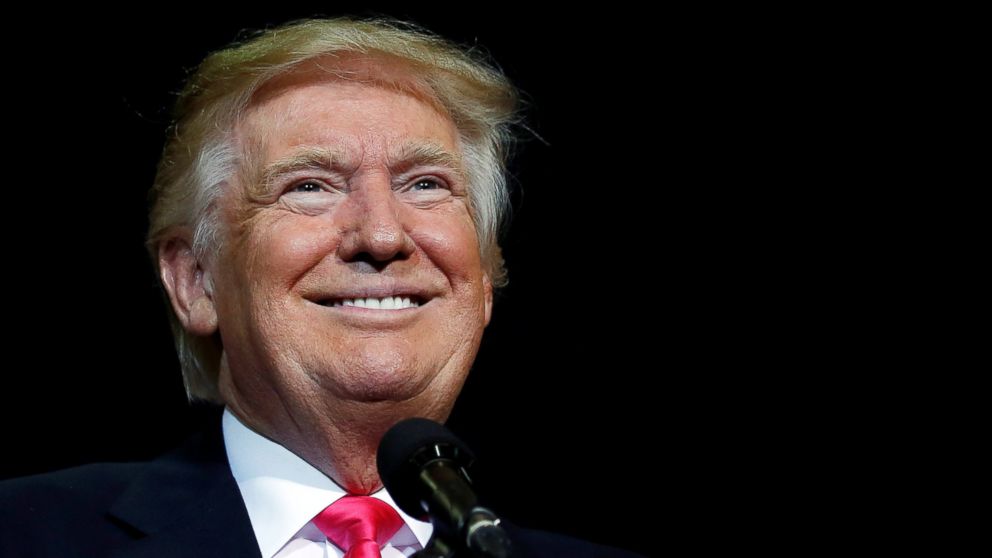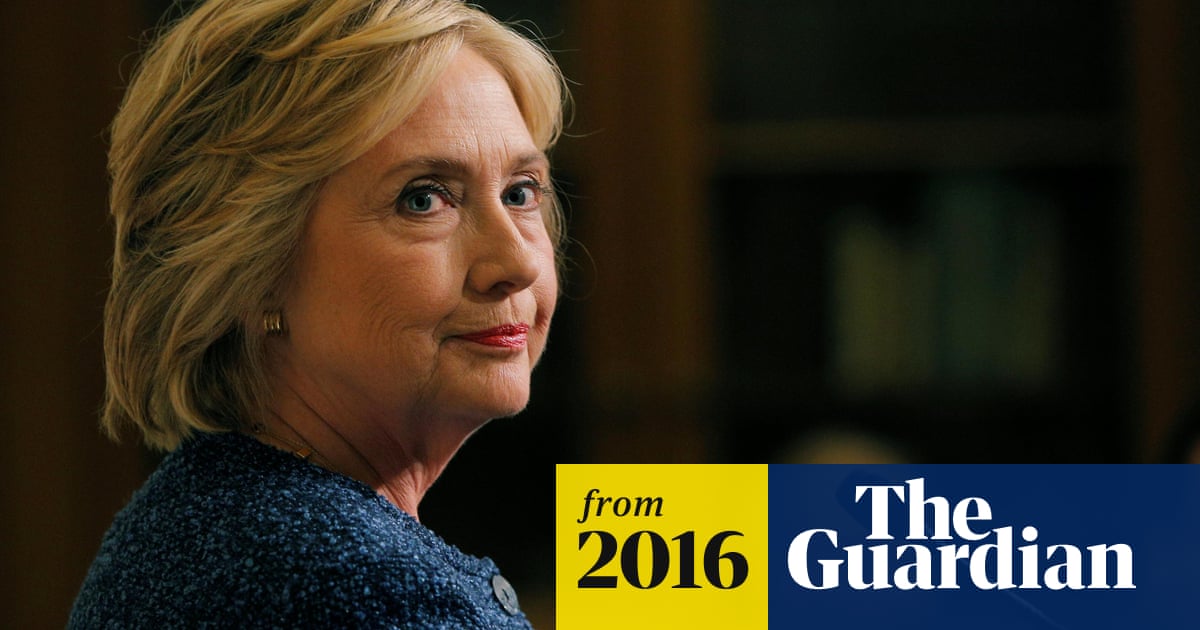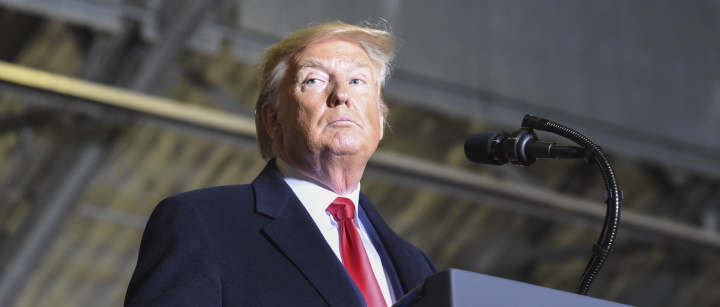The stock market, which is largely based on (investor) human perception, emotion and reaction, therefore, is not a good indicator of economic performance. Unless, of course, there is a crash that leads to a depression. Short of that, Jobs and GDP are better indicators, and on that score, Biden beats Trump
Compare Joe Biden and Donald Trump to see how they stack up on stock market performance, jobs and GDP growth

www.factsarefirst.com
Wealth inequality between the masses and the rich is, by far, a more important data point, of which has been eroding, steadily since the advent of neoliberalism by Reagan, furthered by most US Presidents (more so by Republican presidents) less so by Obama, and even less by Biden. It would take more than one term by any president, to turn the ship of neoliberalism and the damaging impact of wealth inequality it has caused, around.
The pandemic, and the chaos it caused, distorted wage growth figures, and one cannot hold responsible for what was beyond the control of any country's leader (other than their management of the pandemic, for which Trump is a borderline criminal).
This, of course, depends on one's point of view.
Distorted by the war in Ukraine, which is a fact beyond the control of any US President.
There are several criticisms of Trump's foreign policy that are frequently raised:
- Diplomacy and international cooperation: Critics argue that Trump's foreign policy was characterized by a lack of diplomacy and a rejection of international cooperation. He withdrew the United States from several international agreements, including the Paris climate accord and the Iran nuclear deal, and criticized and insulted traditional allies, which damaged the country's reputation and weakened its ability to cooperate with other nations.
- Unpredictability and inconsistency: Trump's foreign policy was often characterized by unpredictability and inconsistency. He frequently changed his positions on issues, such as North Korea, and often communicated his policy objectives through social media, which made it difficult for other countries to understand and respond to his actions.
- Trade policies: Trump's protectionist trade policies were criticized for damaging global trade and undermining the United States' relationships with key trading partners. The trade war with China, for example, hurt U.S. farmers and manufacturers, and led to retaliatory tariffs on American goods. And yes, I am aware that The Biden administration has kept most of the Trump administration tariffs in place, except for a five-year suspension of tariffs that were part of a WTO aircraft dispute and replacement of certain steel and aluminum tariffs with tariff rate quotas. I would argue that Biden wouldn't have continued with the idea if Trump hadn't pursued the policy. As a liberal/libertarian, the libertarian side of me disagrees with tariffs, but that is more to the point of tariffs on raw materials which affects everything else. In some instances, retail prices in certain industries might work to US advantage, but such polices has to be carefully examined for circumstances, forecasts, and possible consequences.
- Human rights: Critics argue that Trump's foreign policy often ignored or even encouraged human rights abuses, including his support for authoritarian leaders such as North Korea's Kim Jong Un and Russia's Vladimir Putin.
- Approach to conflicts: Trump was criticized for his approach to conflicts, such as his decision to withdraw U.S. troops from Syria, which was seen as abandoning Kurdish allies and creating instability in the region. He was also criticized for his handling of the COVID-19 pandemic, including his decision to withdraw from the World Health Organization and his refusal to cooperate with other countries in the development and distribution of vaccines.
Never one to miss opportunities for hyperbole, Trump's so-called 'peace agreements' were not peace agreements, they were cooperation or 'normalization' agreements amongst nations that were not at war. Trump is notorious for going after low hanging fruit, and hyping it as 'great achievements' historical' blah blah blah, ad nauseum. Real peace agreements are made between warring nations, such as the peace agreement achieved by Carter, between Sadat (Egypt), Begin (Israel) Arafat (PLO) and the Oslo accords facilitated by Bill Clinton and are far more difficult to achieve. Trump, in point of fact, has not negotiated one peace accord.
Both Trump's $2 Trillion stimulus and Biden's $2 trillion stimulus packages were necessary to thwart the epic decline in the economy because of world enacted lockdowns to prevent the spread of Covid, not to mention the disruptions in supply chains, which we are oly now beginning to recover from. This was unavoidable and necessary. No one could predict what size of the package would be needed, so, in my view, both administrations decided that more than enough was better than not enough. Given that this forced the Federal Reserve to resort to 'quantitative easing' in order to finance the packages, inflation was inevitable. Therefore, inflation is the price the world is paying for the prevention of what would have been a massive deflation and world depression. Be thankful that inflation is the price, and not the outcome that might have occured but for the stimulus packages. Inflation, therefore is not only bipartisan it is bi-world, most of the major economies of the world participated in stimulus packages in their respective countries, and inflation was/is a world wide phenomenon. What republicans need to start doing, is be honest.
I suppose it's debatable, but Trump's pulling out of the TTP, an agreement that was years in the making, was one of greatest failures of Trump's trade policies, to wit:
President Trump's decision to withdraw the United States from the Trans-Pacific Partnership (TPP) trade agreement had a significant impact on America's ability to conduct trade in the Pacific region. The TPP was a comprehensive trade agreement between 12 Pacific Rim countries, including the United States, Japan, Australia, and Canada. The agreement aimed to reduce trade barriers and promote economic integration among its member countries.
By pulling out of the TPP, the United States lost an opportunity to strengthen its economic ties with countries in the Pacific region. The agreement would have lowered tariffs on U.S. goods and services in member countries, making them more competitive in those markets. It also would have established common standards for labor, environmental protection, and intellectual property rights, which would have given U.S. businesses a level playing field in the region.
Furthermore, by withdrawing from the TPP, the United States ceded economic leadership in the Pacific region to China, which has been pursuing its own trade agreement, the Regional Comprehensive Economic Partnership (RCEP), with other countries in the region. The vacuum that pulling out of the TTP, it has potentially allowed China to expand its influence, fill the vacuum, in the region and gain preferential access to key markets, such as Japan and Australia.
Overall, the United States' withdrawal from the TPP has weakened its ability to shape economic policy in the Pacific region and compete effectively with China.
When comparing statistics, make sure you include that of several presidents before Trump, and Biden, afterwards.
Democrats are for lowered taxes on the middle class. The purchasing power of the middle class is the engine of job growth. But the super rich do not need it, and giving the super rich tax breaks only contributes to the deficit noting that there is no evidence, in the long run, that giving the super rich more, i.e., 'trickle down economics' improves the economy. Thus, there is no clear evidence that giving tax cuts to the super-rich, the upper 1% and beyond, leads to significant improvements in the economy.
Advocates of tax cuts for the wealthy argue that such policies will stimulate economic growth by encouraging investment and job creation. However, many economists dispute this claim, citing research that shows that tax cuts for the wealthy are not particularly effective at stimulating economic growth and job creation.
For example, a study by the nonpartisan Congressional Research Service found that changes in top tax rates have little or no correlation with economic growth. Additionally, a 2014 report by the Congressional Budget Office found that the most effective way to stimulate economic growth is through policies that support low- and middle-income households, such as direct spending on infrastructure and education.
Furthermore, tax cuts for the wealthy can exacerbate income inequality, which can ultimately harm the economy. When wealth and income are concentrated at the top, it can reduce consumer spending and slow economic growth. In contrast, policies that promote greater economic equality, such as progressive taxation and investments in education and infrastructure, can help to create a more robust and sustainable economy. The recent anecdotal reports which the right is using to 'prove' that tax cuts for the rich better the economy, are, indeed, anecdotal, nad do not refute the forty years evidence that 'trickle down economics' works. In fact, it's a myth.
The 40-year con of trickle-down Reaganomics: Why Republican's toxic class warfare only spreads poverty | Milwaukee Independent
Overall, the economic benefits of tax cuts for the super-rich are uncertain, and there is evidence to suggest that such policies may actually be detrimental to the economy in the long run.
For what? a dress code to help prevent the spread of disease? This is the hill you want your parade to crash on? FYI, 'mandates' give a choice, and, as such, do not equal 'force'. Personally, I do not support vaccine mandates. Persuasion, not coercion, is the best approach for a nation.
Inspiring loyalty to the man over the rule of law is what demagogues do, it's called 'cult of personality'.
Hyperbole, he was criticized by our allies, and prefered by Putin and other demagogues.
During his presidency, Donald Trump faced criticism from some of the United States' closest allies. Here are a few examples:
- Canada: Trump had a contentious relationship with Canadian Prime Minister Justin Trudeau, particularly regarding trade policy. The two leaders clashed over NAFTA renegotiations and Trump's imposition of tariffs on Canadian steel and aluminum.
- European Union: Trump's criticism of the EU and his skepticism of the NATO alliance strained relations between the United States and many European countries. Leaders of EU countries, including Germany, France, and the UK, publicly criticized Trump for his policies and rhetoric.
- Mexico: Trump's proposal to build a wall along the US-Mexico border and his characterization of Mexican immigrants as criminals and rapists strained relations between the United States and Mexico. Mexican leaders criticized Trump's policies and rhetoric and refused to pay for the wall.
- Australia: Trump's contentious phone call with Australian Prime Minister Malcolm Turnbull shortly after taking office raised concerns about the future of the US-Australia alliance. The call reportedly ended abruptly after Trump criticized a refugee resettlement agreement between the two countries.
- Japan: Trump's criticism of Japan's trade policies and his decision to withdraw the United States from the Trans-Pacific Partnership (TPP) trade agreement strained relations between the two countries. Japanese officials expressed disappointment with Trump's decision and sought to salvage the agreement without the United States.
It is worth noting that while Trump faced criticism from some of the United States' closest allies, he also had close relationships with some foreign leaders, including Putin, Israeli Prime Minister Benjamin Netanyahu and Saudi Crown Prince Mohammed bin Salman. prime minister of Hungaria Victor Orbán, Duterte (Philippines), and Bolsonaro (Brazil, but voted out of office) Netanyahu is revealing his corruption of late, MBS is a brutal murderer, Oban, Bolsonaro, and Duterte are demagogues.
Hyperbole.
Trump's twitter fingers are one of the sources of his clown reputation.






